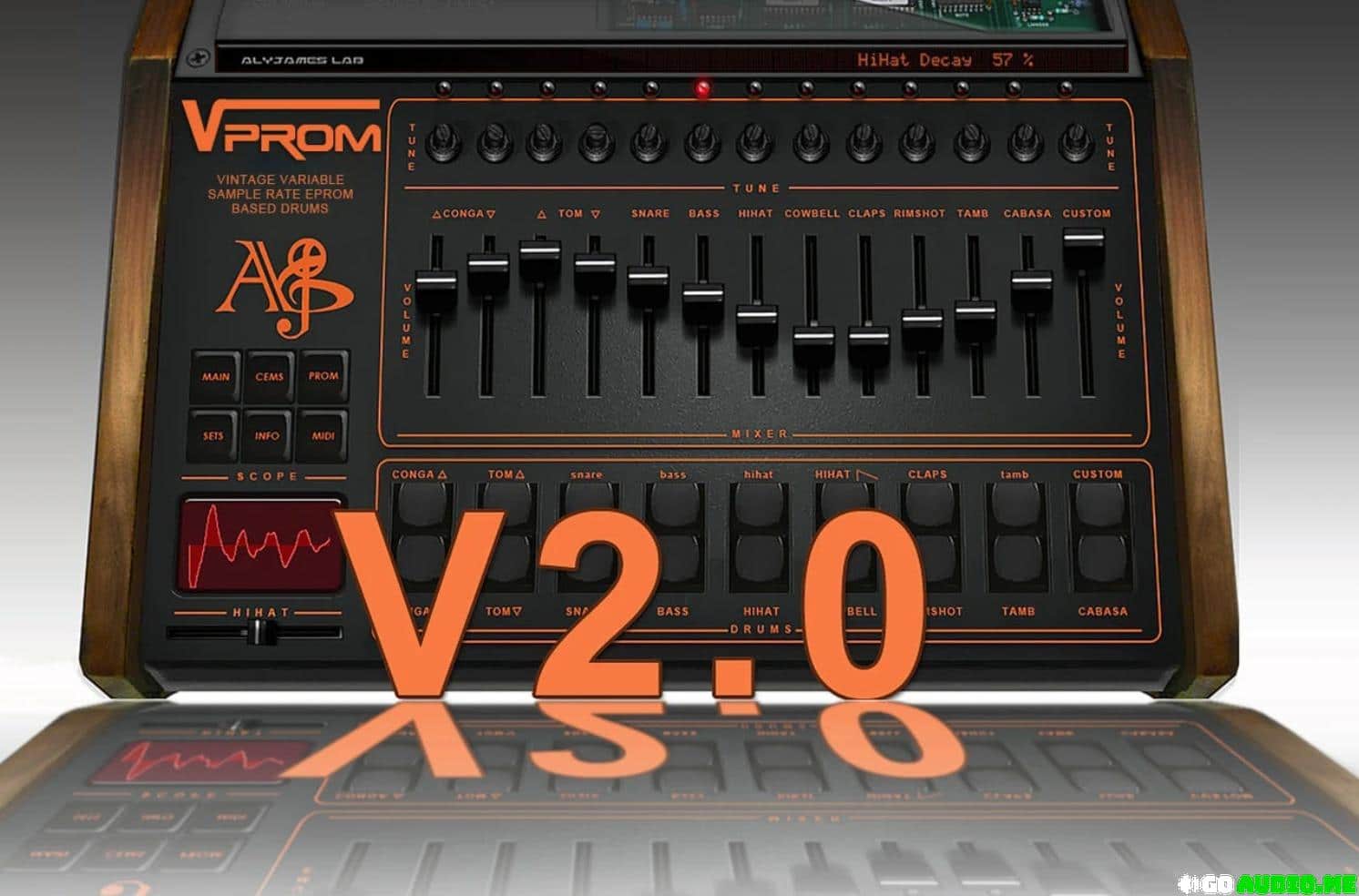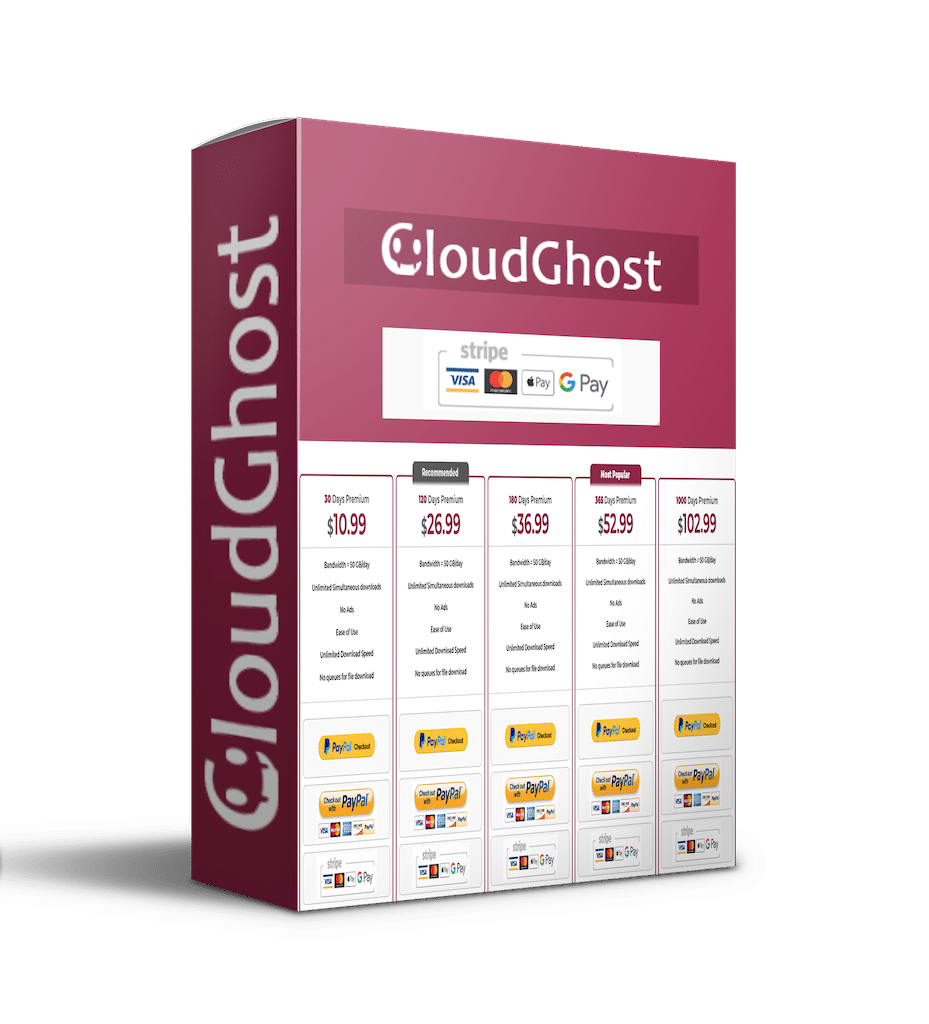AlyJames Lab VPROM v2.0.3 Incl Keygen-R2R VProm is an authentic Linn LM-1 VST which emulate all the character and internal circuitry of the legendary 1st sample based drum machine in History. The Linn LM-1 Drum Computer, invented by Roger Linn in the early 80s
VProm is an authentic Linn LM-1 VST which emulate all the character and internal circuitry of the legendary 1st sample based drum machine in History. The Linn LM-1 Drum Computer, invented by Roger Linn in the early 80s
The Linn was the killer drum machine in town back in the early 80s. It has been used to shape the sound of major acts like: Prince, Phil Collins, Thompson Twins, Stevie Wonder, Gary Numan, Depeche Mode, The Human League, Michael Jackson etc. To this day the unique sound of that machine is highly regarded and only using samples of an LM-1 output cannot reproduce the wide range of sounds this machine can produce and especially the tuning feature and frequency content. The AM6070 DACs and the whole circuitry stands next to the samples characters in that unique sounding team.
Concept
The VProm LM-1 Drum VST provides the closest experience to the real thing because it is not based on samples, instead it accurately models the clocks and counters that reads EPROMs memory feeding the AM6070 DACs to decode the EPROMs data in real-time, models the CEM 3320 filters with tweak-able control over the CV pulses shapes to let more or less transient pass through unfiltered or completely bypass them, special hihat circuitry and VCA providing different hihat sound on each trigger and decay control, separate tuning for all voices with already a wider range without tweaking the electronics…separate outputs for your DAW, velocity handling etc…You will maintain that raw sound at every tune! On top of the cake all voices can be replaced with external EPROM data like on a real machine…Opening up a whole new range of sound, still being processed by the circuitry.
VProm uses a custom C++ core and 3rd party licensed code where nothing fancy was needed.
Version 2.0 now runs on Mac & Windows 32/64-bit Systems and is available as VST2, VST3 and AU format as native 32-bit or 64-bit plugin format.
VProm price is 40.00 €.
VProm Features:
AM6070 modeled real time DAC decoding: Following the exact datasheet decode table for 8bit companded incoming DATA. The real LM-1 nasty griddy sound at every pitch, like the real thing, forget resampling or tuning samples packs which will always sound dull at lower pitches.
Hihat DATA looping & VCA: The LM-1 Hihat circuitry was pretty unique, the hihat proms were read constantly in a loop while only a VCA was triggered, for closed hihat the circuitry had the ability to discharge the current through an additional way based on the decay pot setting. This basically makes the hihat sounding different on every hit.
CEM VCF filters: Unlike the very first produced LM-1 units, later revs had were filtering voices with bass frequency content to minimize the remaining 8-bit noise, using a CEM 3320 VCF configured as a lowpass filter with no resonance. The CV frequency of the VCF was shaped by the circuitry in a way that lets the transients pass through relatively unfiltered. The VProm lets you fine tune the CV pulse or completely bypass the filter, this is useful when a voice is tuned very low or if you want to replace a “Bass” slot with another EPROM that doesn’t require filtering.
Separate pitch tuning: This is one of the coolest feature of the LM-1, letting you tune any voice to a particular frequency for a wide range of sounds. The EPROM’s data were read one byte at the time by a counter which speed was controlled by a relatively stable oscillator, the counters reading speed could then be affected by the external tuning pots in a limited range of + or – 1 octave. This tuning range can be tweaked and the VProm provides a useful wide range of pitch from 1000Hz to 44100Hz and anything in between based on a real mod. (stock was around 12048 – 30303Hz.).
Separate outputs: The LM-1 featured separate outputs for every voices, so as the VProm. You can choose from ALL to 1 Stereo Channel or Separate Channels for each voice in your DAW.
Velocity control: You can limit yourself to only two velocity levels or use the full range of MIDI velocity for convenience.
GUI & automation: The GUI features the original trigger buttons for quick listening and controls over every aspect of the drum machine, most of the parameters like volume and pitch knobs can be MIDI learned to control changes from any external MIDI Hardware.
Loading external EPROM data: The VProm provides the ability to replace all voices with external compatible 8-bit companded EPROM data. Which opens up the machine to LINNDRUM (LM-2), LINN 9000, DMX, DX, DRUMTRACKS etc. samples or even load your own custom made. You can switch between custom loaded and stock EPROMs on the fly. VProm Supports the following type and size EPROMs binaries (.bin):
2716 (2048_Bytes) 2K.
2732 (4096_Bytes) 4K.
2764 (8192_Bytes) 8K.
27128 (16384_Bytes) 16K.
27256 (32768_Bytes) 32K.
LINN LM-1 Sequencer:
It was not needed to model the LM-1 sequencer because regardless of all the urban legends about it, it is mainly a 48 PPQN (pulse per quarter note) resolution thing. Modern sequencers and DAWs have a finer resolution usually around 960 PPQN or higher, this simply means that the same beat with some swing will not groove exactly the same at 960 or 48 PPQN… An easy thing to do is to export your beat in MIDI a 48 PPQN and import it back. The full technical explanation is available in the VProm manual.
VProm version 2.0 features some improvement and changes compared to version 1.0
New MIDI Panel with MIDI learn-able custom trigger maps.
Change in default MIDI trigger map. (see manual.).
New panning capability per drum, panning knobs will replace the tuning knob row via a pop-up box selection. (available while clicking on the TUNE label on the GUI. See control panels).
Improved GUI.
All EPROMs can now be replaced versus only 7 of them in version 1.
Easier and faster Custom EPROMs loading and management; no need to specify the size anymore, VProm does it for you. Once loaded, custom EPROMs are saved with the patch.
The additional CUSTOM voice is renamed to EXTRA and is now loaded by default with a modified delay-less stock LM-1 Snare. (see Manual -> EPROM Loading.).
Double clicking a control resets to default value on most of the GUI controls.
ALT+Left click on each Tune Knob in order to set the clock rate precisely by typing in a value. The main info display will now only display the last edited parameter info or value, such as which EPROM .bin is loaded or the knob, slider etc. current value.
In addition to the original velocity mode, 2 Full velocity modes are now available with linear and now exponential response.
Incoming MIDI Pitch-Bend Message is now recognized and will act as a Global tuning offset, great for live tweaking the whole set or to transpose up or down.
VProm now transmit its triggers as MIDI OUT.
External MIDI learn for controls can now only be attached to MIDI CC messages. (no more Sysx nor aftertouch.).
Homepage:-https://www.alyjameslab.com/alyjameslabvlinn.html


![Output Arcade v2.1.2.R16653 [MAC]](https://www.goaudio.net/wp-content/uploads/2021/10/Output-Arcade-v2.0.5-R11831-60x60.png?v=1634008197)





![Toontrack Hollowbody EBX [WIN+MAC]](https://www.goaudio.net/wp-content/uploads/2024/09/Toontrack-Hollowbody-EBX-150x150.png?v=1726103695)
![Toontrack LATEST RELEASES MIDI BUNDLE [SEP 2024]](https://www.goaudio.net/wp-content/uploads/2024/09/gandr-collage-11-150x150.jpg?v=1725764744)
![Blockbuster Sound Sand Dune & Mockingbird [BUNDLE]](https://www.goaudio.net/wp-content/uploads/2024/08/blockbuster-sound--150x150.png?v=1724378090)

![Blockbuster Sound Mermaids Sirens & Horror Pack [BUNDLE]](https://www.goaudio.net/wp-content/uploads/2024/08/Blockbuster-Sound-150x150.png?v=1723854097)






![Toontrack LATEST MIDI PACK [MARCH 2025]](https://www.goaudio.net/wp-content/uploads/2025/03/Toontrack-LATEST-MIDI-PACK-MARCH-2025-150x150.png?v=1743055485)